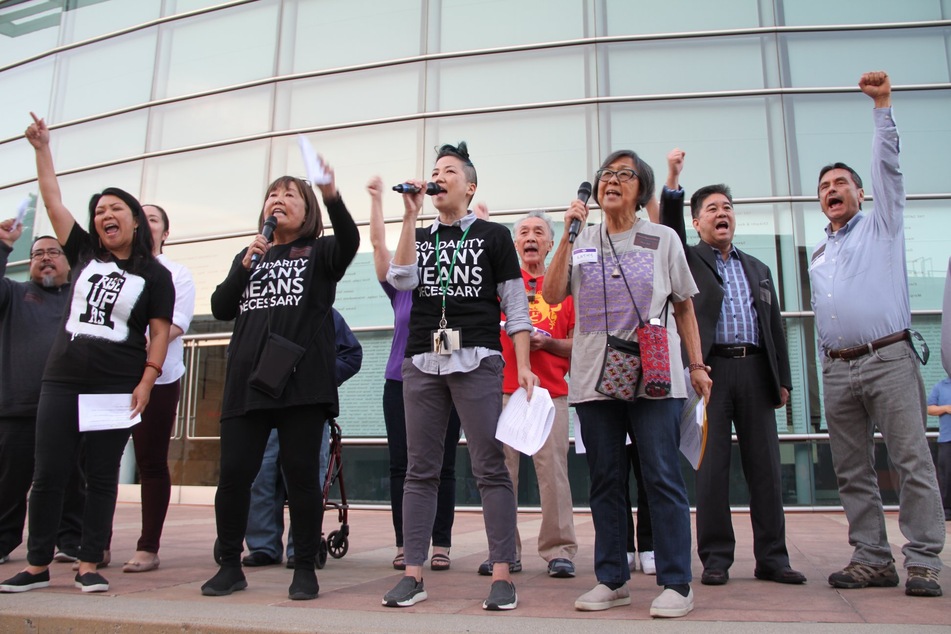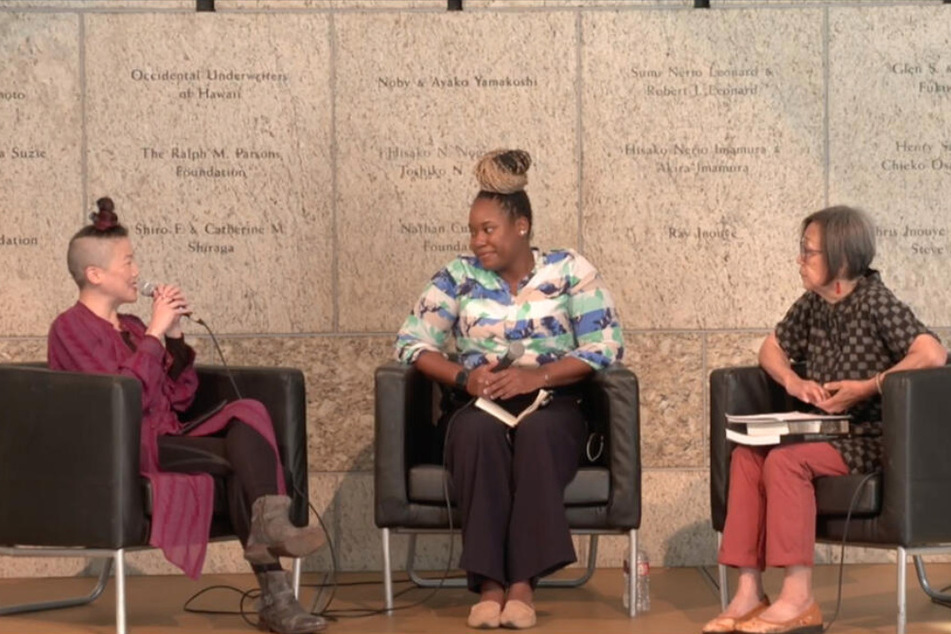Asian-American groups urge Biden to create Black reparations commission before 2023
Washington DC - A group of 76 organizations representing Japanese-American and Asian-American communities on Wednesday sent a letter to President Joe Biden demanding he create a reparations commission for Black Americans by executive order.

The action, spearheaded by the National Nikkei Reparations Coalition (NNRC), urges the Biden administration to heed calls for the passage of a reparations study commission by the end of the year.
Reparations advocates have increasingly demanded the president to use his executive authority to enact a commission amid the growing movement behind HR 40, the Commission to Study and Develop Reparations Proposals for African Americans Act. Despite garnering a record number of confirmed co-sponsors in the House, the bill is set to expire at the end of the year without ever going to a full floor vote.
Japanese-American activists and organizations have been powerful allies throughout the decades-long push for HR 40. In 1988, the US government passed the Civil Liberties Act, which created a commission to provide reparations to people of Japanese descent incarcerated in US concentration camps, known as "internment" camps, during World War II. The following year, HR 40 was introduced in Congress for the first time.
"Just as the Commission on Wartime Relocation and Internment of Civilians (CWRIC) studied the impacts of forced incarceration of Japanese Americans in US concentration camps, we call upon you to courageously establish a commission that will bring forward the stories needed to fully understand our nation’s failure to address the devastating and continuing impacts of enslavement as the foundation for ongoing disparities faced by Black Americans, especially in the areas of health, education, employment, housing, and environmental outcomes," the NNRC wrote in the letter to Biden.
The action is the latest of several letters on behalf of a broad range of human rights organizations demanding Biden uphold his campaign promise to Black Americans in addressing the legacy of chattel slavery, Jim Crow, and present-day racist policies.
Japanese-American organizations stand in solidarity with Black Americans in the fight for reparations

Japanese-American organizations have consistently advocated for US government action to address the intergenerational trauma wrought upon Black Americans, relying on personal experience to convey the urgent need for reparative justice.
Japanese Americans last February marked the 80th anniversary of the passage of Executive Order 9066, which allowed US officials to forcibly remove tens of thousands of people of Japanese descent from their homes and incarcerate them in US concentration camps in the wake of the 1942 attack on Pearl Harbor. More than 2,200 people of Japanese descent were even kidnapped from Latin American countries and brought by force into the US camps.
Since the historic passage of the Civil Liberties Act, Japanese Americans have continued to organize on behalf of other groups suffering the direct and compounded impacts of generations of racist US policies. Meanwhile, Japanese Latin Americans continue to demand their own reparations from the US government while also joining the call for Black reparations.
"While the Civil Liberties Act of 1988 could not undo the devastation of EO 9066, which you poignantly acknowledged on the occasion of its 80th anniversary, the redress and apology to our community was a vital reparative act for survivors, our families, and more importantly for all Americans," the joint letter to Biden said. "The process of the commission itself was vital to the healing of our community, and for the nation to better understand the deep impact incarceration had on us individually and collectively."
"Despite our acknowledgment of the injustices committed against Japanese Americans, we still have failed as a nation to adequately apologize for what we consider to be the greater collective sin: slavery," the coalition concluded.
Reparations advocates are encouraging people of all backgrounds to contact the White House to urge the president to enact a reparations commission by executive order.
Cover photo: Screenshot/Facebook/Nikkei Progressives

